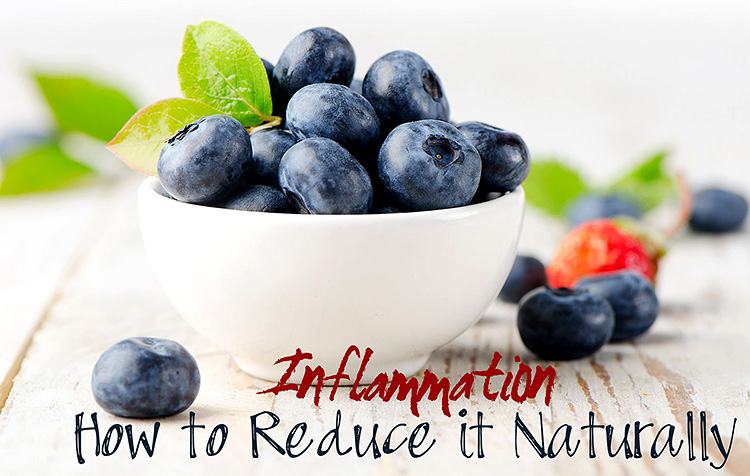4. Relax and rest more.
Your body is hard at work repairing and restoring your glorious cells while you sleep. Most doctors recommend seven to eight hours of sleep per night. If you’re cutting corners in the snooze department, you’re cheating your immune system, which means it needs to kick into high gear in an effort to keep you well (hello, inflammation!).
Stress goes hand in hand with a lack of sleep and a laundry list of demands in our daily lives. Unfortunately, when you’re stressed out all the time, you’re also producing more of the hormone cortisol — inflammation’s BFF. It stands to reason that you can easily reduce chronic inflammation by focusing on stress reduction, whether it’s through more sleep, yoga, meditation, long walks, less technology or a much needed vacation. You know I love to take every opportunity I can to remind you to take a chill pill!
5. Reduce toxins in your food, home and personal care products.
Your body’s alarm system goes off when you absorb toxic chemicals and pesticides through your digestive tract and your skin. Cut down your exposure by eating organic foods whenever possible and choosing non-toxic personal care and cleaning products.
How can we begin to reduce inflammation with the foods we eat?
The best place to start is to eliminate ALL processed foods. Yes, ALL. A true Paleo diet or the GAPS Diet is a good place to begin for eliminating sources of inflammation. Eat traditionally prepared real food. Foods free of pesticides, herbicides and all chemicals are ideal. Animal foods derived from animals raised 100% on pasture or wild are anti-inflammatory.
Another way to overcome the increased inflammation in the body is to eat foods that have anti-inflammatory properties, and that slowly suffocate the inflammation. Among these foods are:
Foods That Fight Inflammation
Leafy Green Vegetables: Leafy green veggies are filled with a compound known as chlorophyll, which has an incredible alkalizing effect on the body. This alkalizing action can help to dramatically reduce inflammation in the body when consumed on a regular basis. Some excellent greens to try are bok choy, green leaf lettuce, red leaf lettuce, romaine, spinach, swiss chard and kale. Be sure to cycle your greens for best results. If you have sensitive digestion, choose the softer greens like lettuces more often.
Garlic: Garlic contains several sulphur compounds which lend it its inflammation reducing properties. These compounds are also known to help fight off cancer, reduce your risk of heart attack and have anti-microbial properties.
Coconut/Coconut oil: The medium chain triglycerides found in coconut and coconut oil are what gives this super food its anti-inflammatory powers. Caprilic and lauric acid (both medium chain triglycerides) are anti-microbial and help reduce inflammation. This is especially good news if you suffer from acne. Acne is an infection of the pores, which means that there is a need for both the anti-microbial and inflammation reducing components of coconut. Coconut oil can be used both internally and topically to help reduce inflammation, depending on where it is manifesting in your body.
Apples: Apple skins contain a compound known as quercetin, which is a natural antihistamine. This compound will work in your body to fight off environmental allergies, helping reduce any inflammation that may be caused as a result.
Ginger: Ginger contains four active ingredients which lend to its powerful anti-inflammatory and pain killing powers. Gingerols, paradols, shogaols and zingerone all work together to reduce pain-inducing prostaglandins in the body.
Spirulina: Spirulina is a blue-green algae that is super rich in chlorophyll, minerals and easy to digest amino acids. All of this comes together to make spirulina an inflammation reducing super star. You can also load up on greens by using a superfood blend by HealthForce Nutritionals called Vitamineral Greens. It’s a combination of Spirulina, Chlorella and other superfood green powders.
White Willow Bark: White willow bark is a very special bark that contains a compound called salicin which is similar to the compound called acetylsalicylic acid – which is commonly known as Aspirin. The pain relieving and anti-inflammatory effects of white willow bark are actually longer lasting than those of Aspirin. White willow also has the same blood thinning effects that you will find when taking Aspirin. White willow will also work to inhibit the pro-inflammatory pathways in your body.
There are many more ways to reduce chronic inflammation, but these five suggestions are a great place to start.

